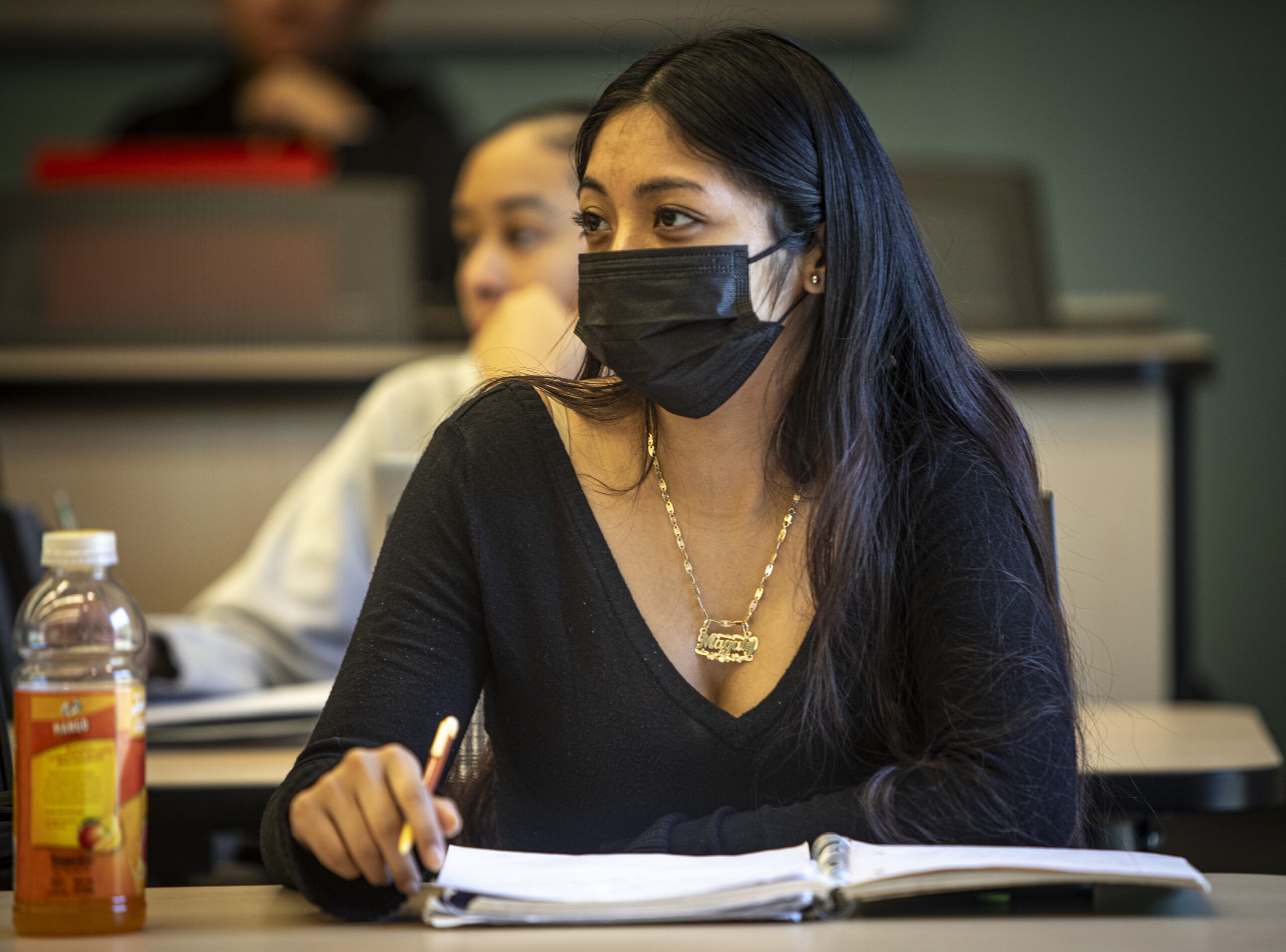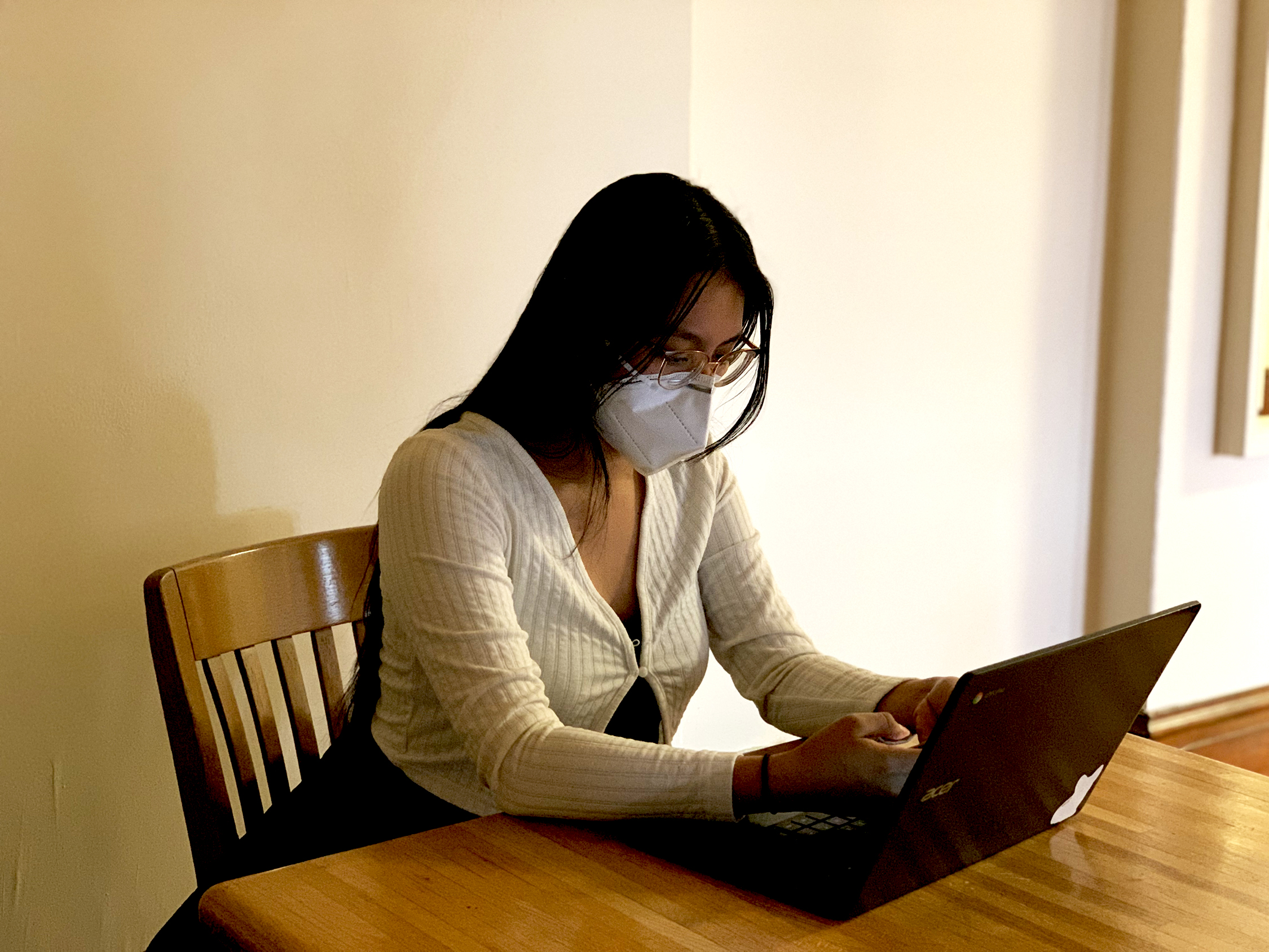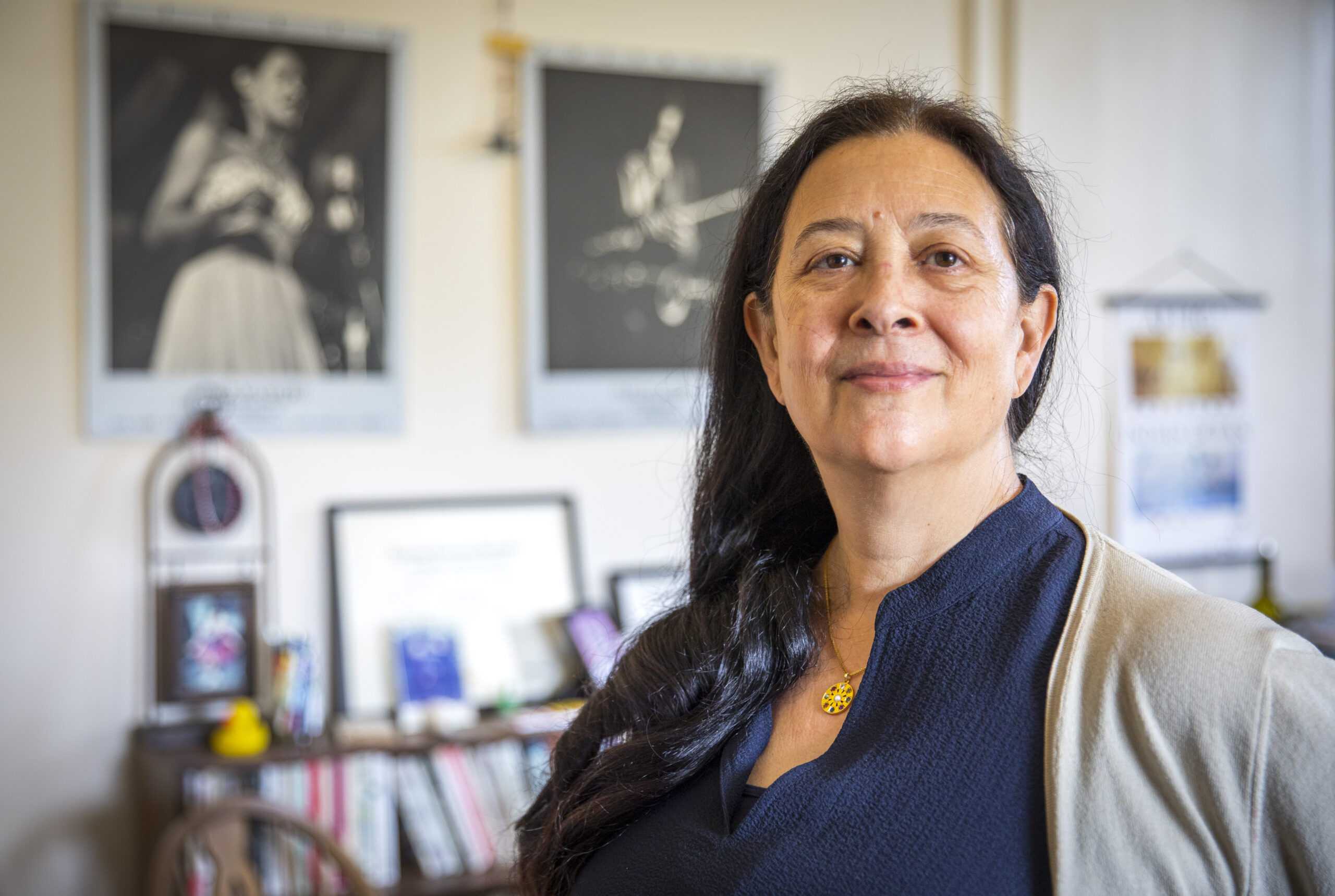
By Kimberly Goldsmith
Trinity Times Correspondent
Rushing to get to class after an overnight shift is the reality now for Trinity Washington University student Anne-Marie Niba, a senior psychology major whose life was permanently altered by COVID-19.
Niba began her college journey in the spring of 2020, right before COVID-19 ignited a worldwide pandemic.
Feeling squeezed from all sides, she decided to take a break from her studies, and then tragically her sister became one of COVID’s victims.
Notwithstanding a heart shattered by the loss, Niba suddenly found herself the adopted mother of her sister’s three children.
Pushing through intense grief and monumental challenges, she had to step up and embrace her new role as guardian, provider, and rock of stability for her new family.
While navigating this new chapter, Niba and the children found solace in each other’s company, creating a bond that would help them heal and move forward, one day at a time, giving her the wherewithal to return to Trinity in 2021.
Her courses began virtually, which defied her expectations for a typical college experience.
“I have mixed feelings,” Niba said. “I am more focused when in person, but I do enjoy the flexibility and freedom of virtual classes.”

As social distancing and mask restrictions eased in the past year, higher education saw distinct transformations since the height of the COVID-19 pandemic.
The post-pandemic campus landscape offered both unique challenges and opportunities, for personal growth, adaptability and for new connections among the student body.
For Trinity student Fannie Martinez Sosa – who moved to Washington from North Carolina in 2021 to study in the university’s nursing program – there were many obstacles to traverse as she was required to present proof of vaccinations, take constant COVID tests, and strained to hear from masked professors.
“It was a real struggle for me,” Sosa said. “It was hard to focus.”
She thought her first year of college would be more exciting and present a greater opportunity to make friends – especially since she was living on campus – but “things were secluded, and it was hard to adapt.”
Two years later Sosa said school is finally becoming more sociable since most of the COVID restrictions have been lifted and was particularly excited about a “Galentine’s Day” event organized to celebrate women’s friendships and connections on Valentine’s Day.
After four years of remote learning and virtual interactions, college campuses across the nation are finally buzzing with life again, said Trinity Provost Carlota Ocampo, who is seeing a light at the end of the tunnel. “Things are finally getting back to normal.”
Although Trinity has accreditation for virtual learning, in person learning is better, Ocampo said, adding that the experience of the COVID adaptation showed university officials that a “mentorship feel” is necessary for most programs.

COVID-19 did, however, really opened the door to integrating more online classes and has “forced technology” on colleges and industries around the world, she said, presenting better options for best practices going forward.
Students and faculty alike were forced to navigate uncharted educational territory at the outbreak of the pandemic.
With little time to adapt, Trinity scrambled to expand its technological platforms.
Faculty underwent “Quality Matters” training to become more proficient at online teaching, Ocampo said. “The goal was to provide the same essential learning.
“Much that changed has been integrated into our current system,” she said. “Continuous learning and no more snow days” have become an end result.
Working full-time, being a mom and trying to get to college was challenging for Catia McCreary when she began at Trinity.
Now a senior studying Criminal Justice, McCreary began her college education in 2011, left, then returned 10 years later when classes were made available online.
Virtual “classes were convenient for me and more effective,” said McCreary, who saw no real challenges when it came to online learning.
In contrast, in-person learning was “overwhelming” because of a taxing commute, she said.
McCreary turned around her entire educational approach, thanks in no small part to the tectonic shifts of the pandemic, now finding success by “knocking it out with a bang!
“People need to be mindful that COVID is still here,” McCreary said, but she expressed confidence that her remaining classes will “be a breeze.”
Ocampo’s background in psychology makes her approach this new world with a little more caution than McCreary.
The pandemic’s negative effects on the mental health of college students are well-documented, still emerging and deeply concerning, she said. “We have to be even more thoughtful about how students and faculty get their emotional support.”
Several students told Trinity Times the post-pandemic campus experience has offered them a chance to redefine their college journey and create a vibrant, resilient community by embracing adaptability, cultivating social connections, and prioritizing their mental well-being. “We need to be mindful and gentle with each other,” Ocampo said. “We need to extend extra compassion to one another.”